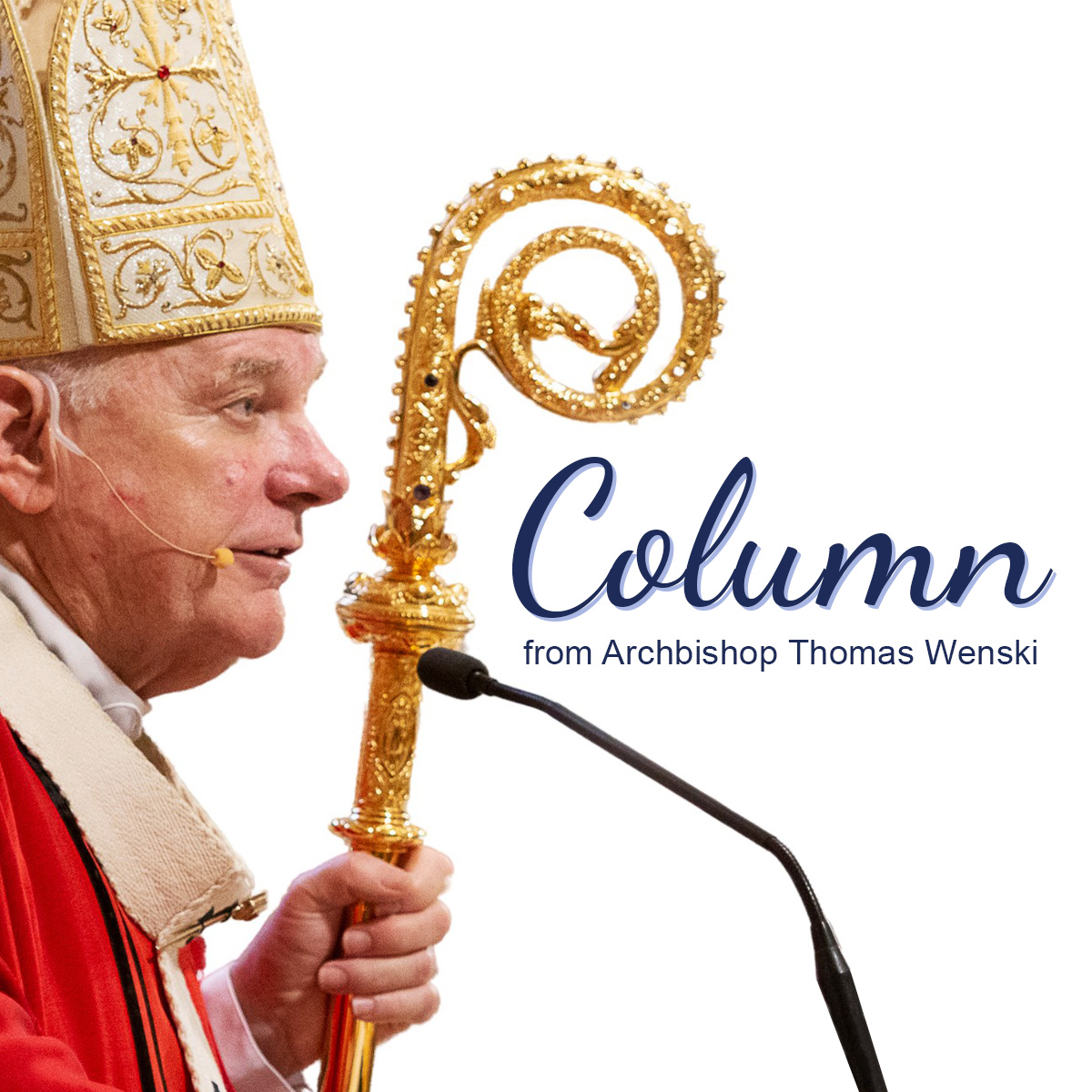By Archbishop Thomas Wenski - The Archdiocese of Miami
In “The Power and the Glory,” Graham Greene’s novel of an imperfect priest caught in the violence of the anti-Catholic Mexican Revolution of the 1920s, the protagonist runs from village to village a wanted man: His parishioners want him for the sacraments; his persecutors for death in front of a firing squad.
Such is the power and the glory of the Most Blessed Sacrament — evoking both love and contempt. And this is not only the stuff of novels, for real life is more dramatic than fiction. Since the time of Nero, when Christians in Rome retreated to the catacombs to celebrate Mass, enemies of the Church knew that to prevail in the fight against her they had to separate the people from the Mass.
Mass attendance is the primary indicator of “Catholic identity” — in other words, going to Mass is what makes us Catholic; or in the more erudite words of the Second Vatican Council, the Eucharist “is the source and the summit of Christian life.” For this reason, pastors of the Church continually insist on the obligation of the faithful to attend Mass on the Lord’s Day. This is a grave obligation that binds all Catholics — and this obligation is easy to understand if we remember how vital Sunday is for the Christian life.
During Lent, our fasting can help remind us that it is the Eucharist that feeds and forms the Church. We receive the Body and Blood of Christ in Holy Communion that we might more perfectly become what we receive, the Body of Christ. In this sense, the Real Presence of Christ in the Eucharist is at the same time an “epiphany of the Church.”
Christ gave us this tremendous gift on Holy Thursday, when at the Last Supper he instituted the Eucharist making bread and wine his true Body and Blood. Each year, we remember this gift with a special feast: the solemnity of the Body and Blood of Christ. This feast of Corpus Christi is often observed in many parts of the world with Eucharistic processions as a public expression of our faith in the Real Presence.
In July of this year, while many will be distracted by the heat of national elections, Catholics in the U.S. will celebrate a Eucharist Congress in Indianapolis as part of a continuing nationwide Eucharistic Revival, a movement to restore understanding and devotion to this great Mystery by helping us renew our worship of Jesus Christ in the Eucharist.
Our world is hurting, and we all need healing, yet many of us are separated from the very source of our strength, which is our communion in his Body and Blood. Jesus Christ invites us to return to the source and summit of our faith in the celebration of the Eucharist and draw, as from a source, the grace for performing the spiritual and corporal works of mercy.
Some may chafe that they are “required” by Church law to attend Mass, and many others lost the “habit” of going to Mass during the COVID lockdown. But Catholic people generally have been prepared to make great sacrifices to practice their faith. Church history is full of edifying stories of heroic efforts to remain faithful to the Mass — Cardinal Nguyen van Thuan, imprisoned after the fall of Saigon and held in solitary confinement for 13 years, celebrated Mass using the palm of his hand as an altar with drops of wine and crumbs of bread smuggled into his cell. And those of Irish descent can recall their ancestors’ heroic sacrifices during the Penal times. Throughout the Irish countryside, hundreds of ledges hewn out of rocks served as altars where Catholics, their religion suppressed and churches confiscated by British Protestants, held secret services during the 17th and 18th centuries at “Mass rocks” in the open air.
The devotion and courage of those Irish Catholics was memorialized in a poem by Mairead Tuohy Duffy:
The
Mass rocks in our lonely glens,
Like gems, they bring remembrance,
Of bygone days, when our kin, they dared,
'Gainst tyrants' swords descending.
The
humble priest, in robes, addressed,
His folks, all there assembled,
And down the glen came red coated men,
They hanged the priest with vengeance.
Today,
we all are free to thrive,
And attend our Mass in freedom,
No Mass rocks, hanging ropes and spies
To kill our priests and religion.
So
let us cherish what we've got,
From ancestors brave and brilliant,
They taught us to be good and true,
To our land and to our religion.

